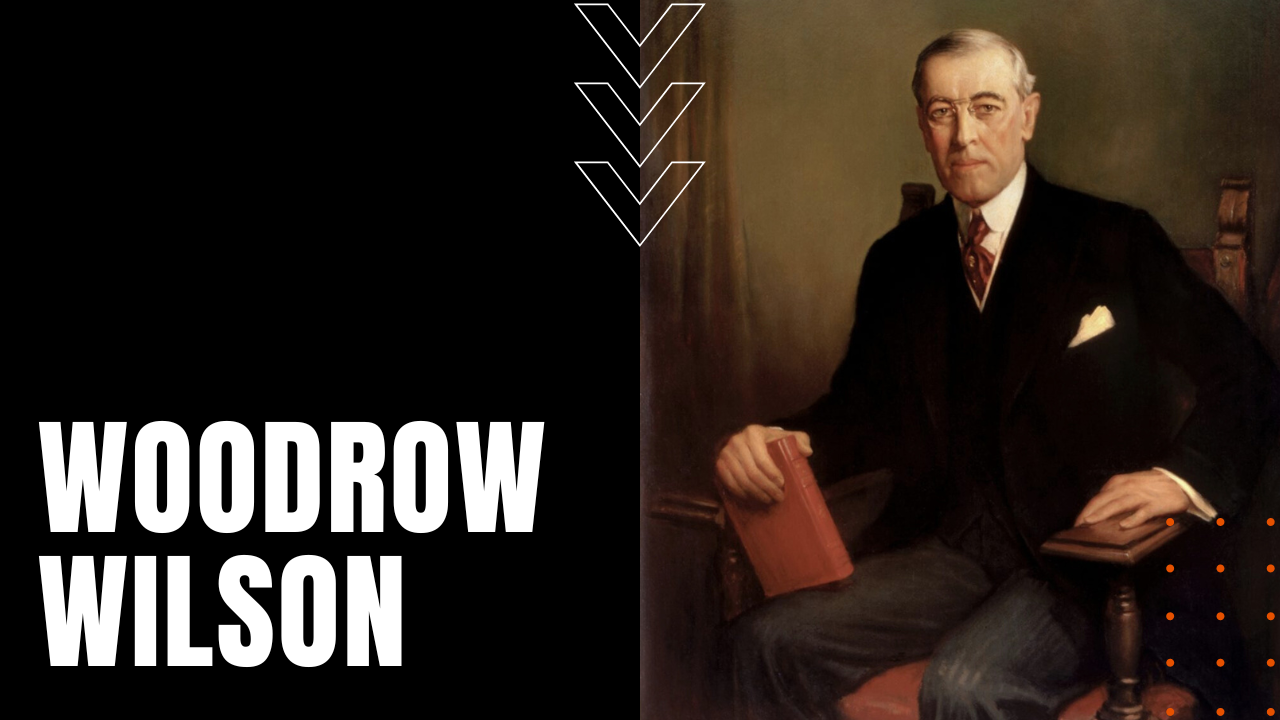Woodrow Wilson

Born in 1856 Virginia, Woodrow Wilson graduated Princeton in 1879, before attending UVA law school, followed by a Ph.D. from Johns Hopkins before teaching jurisprudence and politics at Bryn Mawr, Wesleyan and Princeton, becoming the 13th president of Princeton University from 1902 to 1910.
Pens Five Books
During his time as an educator, he also published the five-volume History of the American People, which romanticized both the Confederacy and the Ku Klux Klan, before winning the New Jersey governor’s office in 1910, where he captured national attention as a progressive reformer. At age 56, Wilson won the White House in 1912 in a landslide election over a divided Republican Party, becoming the last American president to arrive at his inauguration in a horse-drawn carriage.
Progressive Reforms
During his first term in office, Wilson’s progressive reforms included the Underwood-Simmons Act, which reduced tariffs on imports while imposing a new federal income tax. He also established the Federal Reserve to provide oversight over the nation’s banking system and money supply, as well as the establishment of the Federal Trade Commission for the policing of unfair business practices.
Stripping African American Rights
He also led the push for child labor laws, while establishing an eight-hour work day for railroad employees and a system of government loans for farmers. On the downside, however, he reversed hard-fought gains for African Americans by re-segregating a number of federal agencies, effectively undoing important gains in racial equality since the post-Civil War Reconstruction era. Winning a second term by a narrow electoral margin, Wilson’s campaign slogan “He kept us out of war” ended in early 1917, when Germany began the systematic sinking of U.S. merchant ships.
War On Germany
When U.S. officials learned about the Zimmerman Telegram, which exposed Germany’s plot to draw Mexico into World War One on the side of Germany in exchange for lands ceded to the U.S. after the Mexican American War, on April 2nd, 1917, Wilson asked Congress to declare war on Germany—a decision which ultimately hastened the end of the First World War. In a January 1918 speech to Congress, Wilson outlined his “Fourteen Points” to prevent future world wars, proposing a League of Nations to arbitrate international disputes between nations.
Treaty of Versailles
A year later, Wilson helped to negotiate the Treaty of Versailles at the Paris Peace Conference, which placed untenable reparations on Germany and ultimately led to the Second World War. His second term also saw the ratification of the Volstead Act, which brought Prohibition to America on January 17th, 1920, as well as passage of the 19th Amendment that same year, which gave women the right to vote. Leaving office in March of 1921, he passed away at his Washington, D.C. home on February 3rd, 1924, making the life and public policies of Woodrow Wilson, a productive yet complex figure in 20th century history.
